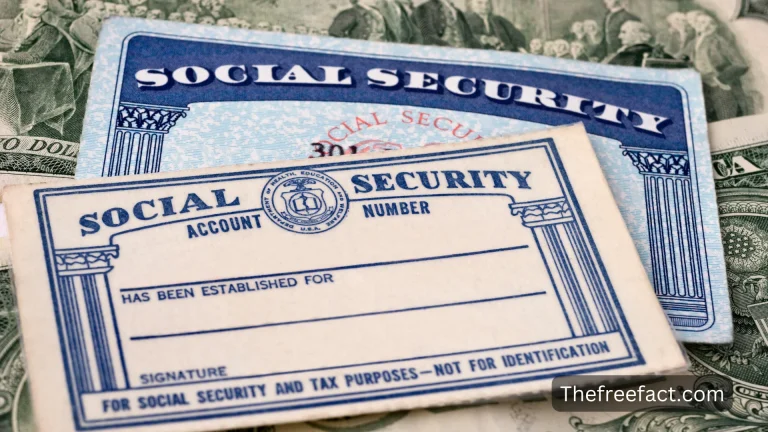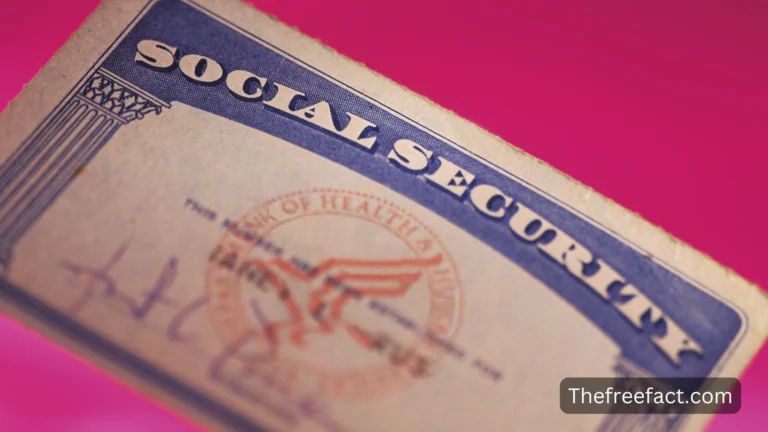What Happens If I Don’t Get 40 Credits For Social Security?
A large part of Americans’ retirement plans has been shaped by the provisions of the Social Security Act, which was signed into law by President Roosevelt in 1935. The Social Security Act was designed to offer income to retirees 65 and older. “This law should be a measure of protection against the loss of a job and poverty-ridden old age for the average citizen and his family,” Roosevelt envisioned.
Although Roosevelt’s act did not achieve every goal he set out to achieve, the main benefit remains today – it is a plan that helps Americans retire more comfortably. People don’t realize, however, that four decades later, a system of credit earning was incorporated into the program.
And that system is still in place today. In this article, you’ll find everything you need to know about Social Security credits, including how much you need, how to earn them, and what to do if you don’t meet the requirements.
What Happens If I Don’t Get 40 Credits For Social Security?
You can receive Social Security benefits once you earn 40 credits, but if you don’t earn 40 credits, you’ll have to continue working until you do.
Those who receive disability or survivor benefits may be exempt from this requirement.

Social Security Credits: What Are They?
In the Social Security credit system, individuals who reach retirement age (65) are tracked to determine if they are eligible for benefits. In order to cover the cost of benefits for all eligible participants, the federal government taxes working Americans in exchange for them earning credits toward those benefits.
Is it necessary to have multiple Social Security credits?
It is generally accepted that you must have 40 credits in order to receive traditional retiree benefits. However, there are some exceptions.
- The retired: In order to qualify for retirement benefits at the age of 65 and above, you must have the full 40 credits.
- Recipients with disabilities: Depending on age, a person who has passed a recent work test and duration work test can qualify for disability benefits with 6 – 20 credits.
- Survivors: If a deceased person earned at least 6 credits, their spouse and children are entitled to survivorship benefits.
How Many Social Security Credits Do You Get Each Year?
There is a maximum of four credits you can earn each year. Since 1978, this maximum has been set in place to ensure that you work a minimum of 10 years regardless of your income. The four credits can be earned in less time depending on your income, but you cannot earn more than four credits annually.
Also check: Who Qualifies For An Extra $144 Added To Their Social Security?
What is the best way to get 40 Social Security credits?
When you work and earn, you earn credits. Social Security taxes those earnings, and you get credits towards your benefits. You will need to earn $1,640 in wages or income per credit in 2023, totaling $6,560 for up to four credits per year.
Depending on the increase in Social Security benefits, the rate changes each year. As a result of the 8.7% increase this year, the cost of earning a single credit will increase significantly by $130 by 2023. Other increases in previous years averaged $40 to $60, so it is relatively small.
What is the time it takes to earn 40 Social Security credits?
You will need to work for at least ten years to earn 40 credits, since you can only earn four credits per year. The ten years do not have to be consecutive. Additionally, working for more than ten years does not increase your benefits. Whether you earn 40 credits or 80 credits, your benefit amount will not increase.
Do I have 40 Social Security credits?
Creating a “my Social Security account” on the Social Security Administration’s website allows you to track your earnings and receive important information about benefits and qualifications.
Social Security Credits: Special Considerations
After some digging, we found that there are some special considerations for earning the 40 credits.
Military Service: The Social Security Administration offers you the following benefits if you served between the dates below.
- Your Social Security record will be credited with the extra credits from 1957 through 1967.
- Until 2001, you didn’t have to do anything to receive the extra credits. Your record was automatically updated.
- Military service no longer qualifies for extra earnings credits after 2001.
Self-Employment: When you are self-employed and you don’t receive your income from an employer, you are required to pay social security taxes through your income taxes. With an optional method of reporting, you can still earn Social Security credits if your net earnings are less than $400. You earn credits the same way you would if you worked outside your own personal business.
Social Security Benefits: How To Collect Them
Generally speaking, Social Security benefits fall into two main categories: those who are over the age of retirement and those who are under retirement age.
- Those who have reached the minimum retirement age (62 years) and earned enough credits during their working career are eligible for retirement benefits.
- The Social Security Disability Insurance Program (SSDI) is available to those who cannot work due to a qualifying disability and who have earned enough work credits to qualify.
You must apply for these benefits through the Social Security Administration (SSA), either online, by phone, or in person at your local office.
The Bottom Line
Since earning those credits becomes increasingly difficult as the earning rate increases annually, some may be caught off guard by the 40 credit requirement. Although the credit earning standard is relatively low, the misconception that everyone earns Social Security benefits is sadly false. You must contribute to earn Social Security benefits.







